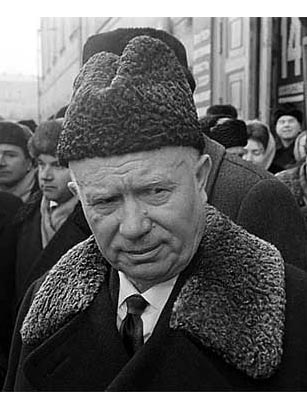
Nikita Khrushchev was named TIME Man of the Year in 1957
A Soviet loyalist and Stalin's trusted heir, Khrushchev was also responsible for an opening up of the country and "de-Stalinization." In 1956, as Soviet premier, he denounced his former patron and set into motion a new freedom. He reorganized Soviet industry, stemmed the tide of desertions from the Western Communist parties, soothed the incipient rebellion in Poland and Hungary, and got from China's Mao Tse-tung a showpiece pledge of allegiance.
TIME wrote "In 1957's twelve months, Nikita Khrushchev, peasant's son and cornfield commissar scorned by the party's veteran intellectuals, disposed all his serious rivals — at least for the time." Khrushchev toured the U.S. and met with Eisenhower in 1959. He proposed a period of peaceful coexistence between the two countries. But a growing discord in the Republic and the failure of many of the leader's ambitious projects caused party leaders to force his retirement in 1964.
Researched by Joan Levinstein, the Time Inc. Research Center